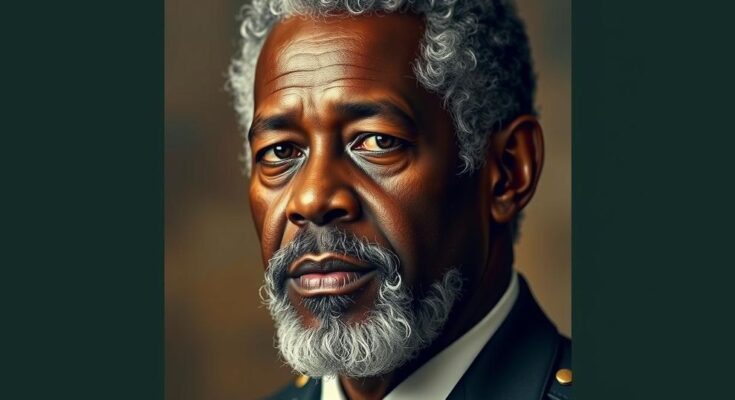Prince Yormie Johnson, a notorious Liberian warlord turned senator, has died at 72. Gaining infamy for his actions during the civil wars and a shocking 1990 video of him during President Doe’s torture, he was never prosecuted despite calls for accountability. Johnson had a significant political influence in Liberia, supporting key presidential candidates while remaining a controversial figure owing to his past and allegations of corruption.
Prince Yormie Johnson, the infamous Liberian warlord-turned-senator, has passed away at the age of 72. He gained notoriety during the civil wars from 1989 to 2003, particularly after footage surfaced in 1990 depicting him enjoying a drink while witnessing the torture of then-President Samuel Doe. Although the Truth and Reconciliation Commission recommended his prosecution for war crimes, he was never charged. Since being elected to the Senate in 2005, Johnson was influential in Liberian politics, supporting the last three presidential candidates, even as many viewed him as emblematic of the country’s ongoing struggle with accountability. Human rights activist Adama Dempster articulated that Johnson’s death dealt a significant blow to victims who sought justice for his actions during the conflicts.
Johnson’s death occurred in Monrovia, with no immediate disclosure regarding the cause. In a condolence message, President Joseph Boakai recognized Johnson’s pivotal role in Liberia’s history and his contributions to national discussions through his Senate service. Johnson’s capture of President Doe and the subsequent brutal execution marked a significant moment in Liberia’s civil wars, leading Johnson to later express regret while justifying his actions by claiming he was protecting his people from oppression under the Doe regime. Johnson’s political career, while marked by efforts to improve the lives of his constituents in Nimba County, also included allegations of corruption. He faced US sanctions in 2021 for purportedly profiting from governmental funding distributions.
Despite being viewed as a liberator by some in his region, there persists a sentiment that Johnson eluded accountability for his war-time crimes. His dual legacy as a political figure and a notorious rebel continues to provoke mixed sentiments among Liberians, reflecting the complexities of the nation’s recovery from years of violence.
Prince Yormie Johnson emerged as a central figure during Liberia’s two civil wars, which occurred between 1989 and 2003. His notoriety peaked due to a 1990 incident that was widely circulated, showcasing him drinking beer while President Samuel Doe was tortured nearby. The Truth and Reconciliation Commission in Liberia identified Johnson for prosecution due to his involvement in war crimes, yet he never faced legal consequences for his actions. Transitioning from a rebel leader to a senator, he wielded significant influence in the political landscape, supporting successive presidential candidates and affecting legislation in the country. His life illustrates the tensions between accountability for past violence and political pragmatism in post-conflict Liberia.
In summary, the demise of Prince Yormie Johnson represents a complex intersection of political influence and accountability in Liberia. While he was celebrated by some for his contributions to his local constituency, many others lamented the justice that was never served regarding his role in the civil wars. His legacy remains contested, embodying the struggles that Liberia continues to face in reconciling its violent past with present political realities. Johnson’s death may serve to rekindle discussions about the need for justice and reconciliation in the nation, highlighting the significance of addressing historical grievances to foster a stable future.
Original Source: www.bbc.com




